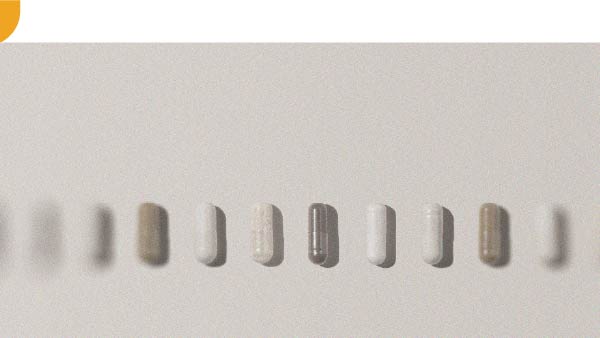10 of grandma’s health tips you should definitely know about … and pass on
A grandmother’s advice can be invaluable. Discover 10 essential, traditional remedies for relieving many everyday health niggles and staying on top form.

Clay for soothing insect bites
A whitlow? Grandma recommends a clay poultice! Tendonitis? Same solution. Dry skin? A clay face mask! Etc. etc.
Rich in minerals and trace-elements, as well as being antiseptic and anti-inflammatory, clay relieves insect bites, eases pain, and is great for your skin (1). And it feels so nice to put on a clay face-mask that it would be a shame not to benefit from it ...
Garlic for respiratory health and immunity
If there’s one remedy that grandmothers would invariably add to their sauces, it’s garlic. A common ingredient in European cooking, this condiment was also used by grandma for medicinal purposes.
Once again, the traditional knowledge passed from one generation to the next bears the stamp of common sense: garlic is indeed highly beneficial. Amongst others, it supports respiratory health, and helps to combat stress and maintain normal function of the venous system, liver and heart. It also has antibacterial and antioxidant properties, and supports the immune system(2).
In short, consuming garlic in moderation is always good idea health-wise. And if you’re not keen on the smell, or don’t want to have ‘garlic breath’, you can instead take a completely odourless supplement, highly concentrated in extract of black garlic (such as ABG10+®).
Vaseline on your feet to prevent blisters
Do you know about this simple way of avoiding getting blisters on your feet, especially when you’re breaking in new shoes?
To prevent these troublesome sores, spread a layer of Vaseline on the areas of your foot likely to be affected, especially where the shoe tends to rub. A simple little tip but a highly effective one!
Aloe vera for all skin problems
Aloe vera gel has endured over time and is just as relevant today as it ever was. Used topically by our grandmothers to treat acne, mouth ulcers, burns, sunburn, corns and dry skin, the application of aloe vera gel constitutes a traditional remedy for all skin-related problems.
A number of recent studies have also highlighted aloe vera’s benefits when taken internally, concluding that it may help to support immunity and maintain healthy skin(3).
In terms of dietary supplements, opt for one containing organically-grown aloe vera, sourced from fresh leaves (such as Organic Aloe Vera).
Nail varnish under your watch strap
Do you find your watch or jewellery makes your skin red? Once again, granny has the answer!
Apply a layer of nail varnish to the back of your watch or jewellery. This small measure will effectively prevent your skin from coming into contact with nickel and so prevent any irritation. Magic, eh?
The benefits of liquorice and oregano for digestion
When we were little, our grandmas would sometimes recommend eating liquorice to help soothe our tummies. The root of this plant does indeed support healthy digestion (4). If you’re not keen on its distinctive taste, you can still benefit from its properties by taking an extract of deglycyrrhizinated liquorice root (such as the product DGL).
Grandma’s cooking also included another beneficial compound: the aromatic herb oregano (and its close cousin, marjoram), which supports gut health (5). To benefit from its properties, you can take a supplement with a high content of carvacrol, one of its most active ingredients (for example, the product Oil Of Oregano).
Vegetable broth for a hangover
The ‘morning after the night before’ can sometimes be pretty grim. To get over a hangover, your grandma would probably have told you to drink plenty of water in order to rehydrate yourself. More specifically, she may have recommended a good vegetable broth, rich in mineral salts.
No doubt she also advised you to avoid noise, to rest, to get some fresh air and to be a little more abstemious the next time you went out drinking!
St John’s Wort for mood and sleep
Known for centuries, St John’s Wort, often referred to by its botanical name – Hypericum perforatum - is one of the most common ‘grandmother remedies’. A small hint as to its use: in the Middle Ages, it was called the ‘devil-chaser’...
It is in fact recognised for helping to maintain good mental health and emotional equilibrium, as well as good quality sleep. This is due to one of its active ingredients: hypericin(6).
Benefit from the properties of St John’s Wort with a supplement rich in hypericin (such as Saint-John’s Wort Extract).
Ginger: an excellent all-round tonic
Recent studies have shown that ginger (or more specifically, its active ingredients gingerols) supports normal immune system function, and helps maintain muscle tone and vitality in general, and well-being when travelling (7).
And indeed all these benefits were already known to our predecessors, who used ginger to prevent travel sickness and as a general tonic.
To get the most out of ginger’s benefits, choose a supplement with a high gingerol content (such as Super Gingerols).
Camomile tea to help you relax
And finally, what grandma didn’t keep some dried camomile flowers in her cupboard, ready to make into an infusion, decoction, or poultice, or any number of other remedies?
Yet again, granny was right, especially when she recommended drinking camomile tea to aid digestion and help a particularly rich meal to ‘go down’. In fact, studies have shown that camomile promotes good digestion, immune health and relaxation(8).
You can find the redoubtable camomile in various synergistic formulations, usually combined with other plant extracts (for example in Muscle Relaxing Formula).
In summary then, it makes sense to carry on listening to grandma given that science appears to be proving her right. And don’t forget that these plants, used quite intentionally by our grandmothers for their beneficial properties, are the very same plants that today feature in a great many dietary supplements.
References
- CARRETERO, M. Isabel. Clay minerals and their beneficial effects upon human health. A review. Applied Clay Science, 2002, vol. 21, no 3-4, p. 155-163.
- TSAI, Chia-Wen, CHEN, Haw-Wen, SHEEN, Le-Yen, et al.Garlic: Health benefits and actions. BioMedicine, 2012, vol. 2, no 1, p. 17-29.
- VOGLER, B. K. et ERNST, E. Aloe vera: a systematic review of its clinical effectiveness. British journal of general practice, 1999, vol. 49, no 447, p. 823-828.
- KARKANIS, Anestis, MARTINS, Natália, PETROPOULOS, S. A., et al.Phytochemical composition, health effects, and crop management of liquorice (Glycyrrhiza glabra L.): Α medicinal plant. Food reviews international, 2018, vol. 34, no 2, p. 182-203.
- GUTIÉRREZ-GRIJALVA, Erick P., PICOS-SALAS, Manuel A., LEYVA-LÓPEZ, Nayely, et al.Flavonoids and phenolic acids from oregano: Occurrence, biological activity and health benefits. Plants, 2018, vol. 7, no 1, p. 2.
- MCINTYRE, Michael. A review of the benefits, adverse events, drug interactions, and safety of St. John's Wort (Hypericum perforatum): The implications with regard to the regulation of herbal medicines. The Journal of Alternative and Complementary Medicine, 2000, vol. 6, no 2, p. 115-124.
- SINGLETARY, Keith. Ginger: an overview of health benefits. Nutrition Today, 2010, vol. 45, no 4, p. 171-183.
- SRIVASTAVA, J. K., GUPTA, S., et al.Health benefits of chamomile. Drug plants I, 2010, p. 33-53.
2 Days
Efficiency and speed
Efficiency and speed
Cuccie
4 Days
GOOD BRAND IN FOOD COMPLEMENTS
GOOD BRAND IN FOOD COMPLEMENTS - SERIOUS WITH GOOD DOCUMENTS AND DETAILS SCIENTIST. AND SERIOUS HONNEST COMMERZIALISATION. I HAVE TRUST IN THEIR PRODUCTS.
FENOGLIO Guy
5 Days
Very good experience
Very good experience, the products arrived in time, in perfect condition and are good quality. Thank you.
GABI TIRCOCI
11 Days
very good expereince
very good expereince
Jelena Đaković
11 Days
Very good products.
Very good products.
Agnes BENDSAK
13 Days
Just OK
Just OK, ordering from company for many years and being safisfied
Lynn Mae
14 Days
Recomendo
Produtos encomendados são recebidos atempadamente e de acordo com o anunciado! Muito satisfeita!
Carla Sofia
14 Days
Everything is great!
Everything is great!
Jonas
19 Days
The delivery was fast and the product…
The delivery was fast and the product is great
SOMMARIVA Gianni
20 Days
Great service and lots of information
Great service and lots of information
Gabi
23 Days
Service Satisfaction
I’m satisfied with the service; it fulfilled what it set out to do.
Anfhony Abreu
26 Days
Original product and fast delivery
Original product and fast delivery. I haven't started it yet, but will do soon.
Vincenza Catania
29 Days
Good quality
Good quality. Good service.
Leonel Guzman
31 Days
Top!!!!!!!!
Top!!!!!!!!
Michael
33 Days
Excellent!
Products are great and delivered fast!
PARDINI Debora
of experience
your money back
##montant## purchase




